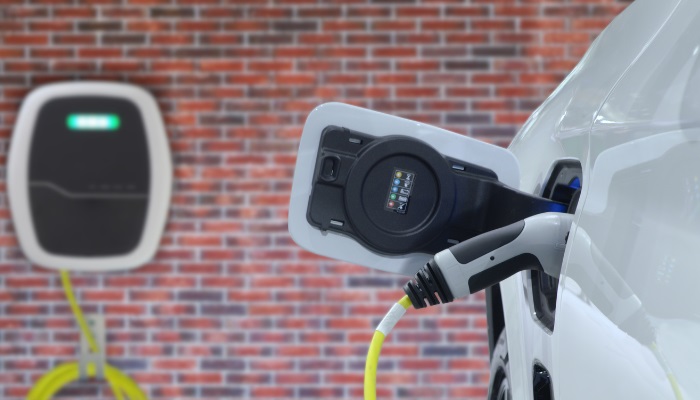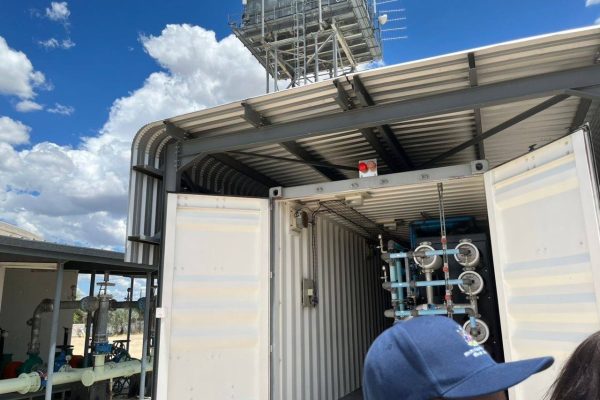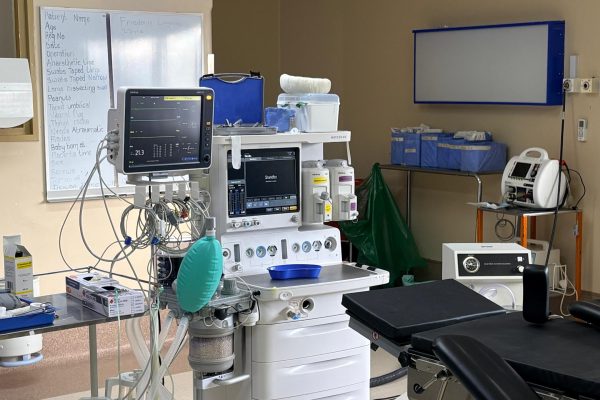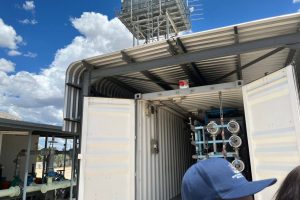
By: Mathias Hangala
The City of Windhoek has officially launched its first Electric Vehicle (EV) Charging Station, as part of the country’s green mobility journey.
The station, valued at approximately N$120,000, was donated by TESLA Energy Solutions and inaugurated on Monday as part of the city’s Zero Emissions Week 2025 activities.
Running from 15–22 September, Zero Emissions Week aims to raise awareness around climate change, sustainable mobility, and the benefits of reducing carbon emissions.
This year’s events include an electric vehicle exhibition, an environmental video awareness competition, cycling gear giveaways, corporate trivia, and a citywide Car-Free Day.
A GREENER ROAD AHEAD
Electric vehicles (EVs) are increasingly viewed as a sustainable alternative to traditional fuel-powered cars. With low to zero tailpipe emissions, they are found to offer an environmentally-friendly transport solution, reducing pollutants considered hazardous to both people and the planet.
According to industry experts, EVs represent a transformative shift in the automotive sector.
As traditional combustion engines give way to electric powertrains, new opportunities and challenges are emerging, particularly in the skills and technologies required for manufacturing and maintenance.
The EV boom is also creating demand for expertise in battery production, charging infrastructure, and sustainable innovation. These new roles span engineering, quality control, and research and development, with a focus on enhancing energy efficiency and advancing Namibia’s clean energy goals.
Speaking at the launch event, Pierre van Rensburg, Strategic Executive for Urban and Transport Planning at the City of Windhoek, emphasised that Windhoek’s commitment to sustainable mobility is grounded in local realities, not just international trends.
“This week is not about following global buzzwords. It’s about solving real problems, like air pollution, congestion, and transport emissions that affect Windhoek every day,” van Rensburg said.
He added that transport accounts for roughly 25% of global CO₂ emissions, with vehicles contributing up to 70%.
“We must envision a cleaner, more sustainable future,” van Rensburg stated.
He also urged residents to embrace greener alternatives like public transport, cycling, and walking, highlighting the city’s efforts to promote sustainable urban mobility.
Windhoek mayor, Ndeshihafela Larandja, hailed the charging station as a milestone in the city’s climate journey.
“This installation reflects our dedication to climate-resilient development and reducing our carbon footprint. It’s a catalyst to normalise electric mobility and expand EV infrastructure across Windhoek,” she said.
THE PRIVATE SECTOR’S ROLE
Kalipi Aluvilu, co-founder of LEFA, a local mobility company that has adopted EVs, shared early successes and challenges from the transition.
“Since launching our electric mobility pilot in 2024, 11% of all LEFA rides are now zero-emission,” Aluvilu said. “But moving to electric vehicles isn’t just about buying cars; it requires infrastructure, incentives, and coordinated policy support,” he noted.
At the same event, Elron Awase, TESLA Energy Solutions managing director, introduced a new charging station by saying the 12V, 32-kilowatt unit supports two types of electric vehicles.
A full charge costs about N$120 and takes between 30 minutes and 7 hours, depending on the vehicle type.
TESLA Energy Solutions already operates additional charging stations at places like Pupkewitz, signalling a growing ecosystem for EVs in Namibia.
Zero Emissions Week 2025 also highlights the city’s broader sustainability strategy, which includes the 25MW Solar PV Project, the Windhoek Solar Centre, and the Sustainable Urban Transport Master Plan (SUTMP).
These initiatives aim to provide accessible, low-carbon public transport and non-motorised infrastructure, while encouraging public participation through cycling, walking, and community events.









